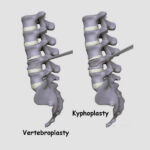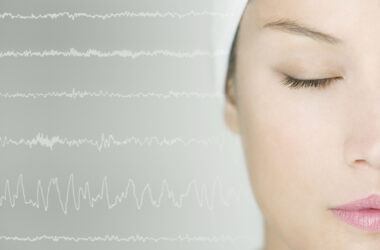There are several types of injuries to the brain that are known to pose a seemingly infinite number of risks to your health.
It doesn’t matter how minor a brain injury may seem; they have the potential to change a person in more ways than one.
Although there are numerous side effects related to brain injuries and the surgeries that may follow, this article is going to break into the correlation between brain trauma and depression.
Considering the unique role the brain plays in the human body, it’s understandable that depression can be a factor stemming from an injury.
Depression is much more prevalent than you may know in regard to surgery and traumatic brain injuries.
However, the issue is that some individuals have a hard time shaking it off, even with the help of medical expertise.
How Can a Brain Injury Cause Depression?
It’s a lot simpler than many consider, but it’s also essential to note that depression is not a guarantee after a brain injury.
In many cases, depression is a part of the recovery process after receiving trauma to the brain.
This also shouldn’t be taken lightly, as it doesn’t take much to cause significant, long-term damage to the brain.
Nevertheless, many patients experience depression they’ve never felt prior to their injury, and surgery can play a role in this occurrence as well.
There are also different kinds of depression that affect people in a variety of ways.
Stemming from a brain injury, some people may encounter general depression, while others may feel the exaggerated effects of post-traumatic stress disorder.
Some of this comes down to exactly what caused the brain injury and what changes may have occurred internally after the surgical operation.
Research shows that neuropsychiatric symptoms can be rather disproportionate to the severity of traumatic brain injuries.
Although depression is an important factor with this type of injury, a wide variety of emotional changes can occur in the brain post-op.
Emotional Changes After Surgery
Surgery is one of the trickiest aspects when it comes to healing after a minor or severe brain injury.
Brain surgeons are undoubtedly highly skilled, but there’s always the chance that a patient may encounter some emotional and physical struggles after the operation.
Of course, this is hopefully avoided at all costs, but there isn’t necessarily a guarantee, as the brain can be rather unpredictable.
Some common emotional changes after surgery for a brain injury include:
- Various forms of depression
- Mood swings
- Potential lack of empathy
- Mild to severe anxiety
- Insomnia
- Irrational anger
Although any one of these could occur, depression seems to be common regarding brain injuries.
This is definitely understandable, considering the nature of the injury, but it’s important for patients and doctors to work together to continue on the path of healing.
In some circumstances, general depression medication may not be an option due to the requirements of the injury and surgery.
Getting back to one’s normal self may simply require ongoing therapy or conjunction of multiple medical and holistic practices.
Researchers and medical professionals have spent years trying to understand exactly what triggers these emotional changes after a brain injury.
There are a few answers available, and they can all be found in various aspects of how the brain works.
What Triggers Depression in Brain Injuries?
There’s a particular science behind what causes the rise in depression after someone suffers a brain injury.
Although there are many points that could be considered, researchers believe a specific protein in the brain has something to do with it.
A protein called neurofilament light chain is known to be released by damaged brain cells.
Researcher shows that there’s a link between higher levels of this protein and the occurrence of depression and symptoms of PTSD.
This is simply one known potential biomarker for depression after brain injuries and the surgeries that follow.
It also highlights that individuals who have suffered more than one brain injury could be more susceptible to worse cases of depression.
Many medical professionals would state that more than one brain injury can pose many more health risks than just a single injury.
In some cases, these risks aren’t necessarily the injury itself but the side effects and changes in the brain that are found after the fact.
Thankfully, there are numerous medical and therapeutic solutions to manage depression.
It’s important to note that this path to healing can be easier for some than others based on their brain chemistry alone.
After dealing with even a single brain injury, it could come with lifelong challenges for the patient.
This is partly why brain injuries are seen as such a significant danger, as the organ controls many different aspects of who people are inside and out.
The Bottom Line
Brain injuries are no joke, but even if surgeries can help bring people back to normal, this can sometimes come with a few side effects.
Depression is one of many factors that are found in this topic, and its presence can be hard to shake for some people.
Researchers hope to further understand the biomarkers that generate feelings of depression after a brain injury so patients can heal faster with more successful outcomes for their brain and overall health.










